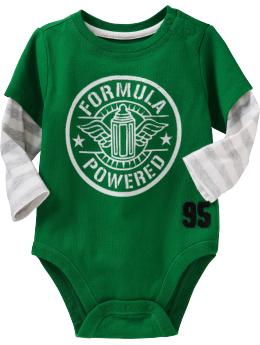Well I must say that I'm seriously disappointed. Yesterday our family went to IKEA and while we were there we hit their restaurant for a bite to eat. I went through the line and there it was in the drinks cooler: Nestle Pure Life Water. My heart thudded to my feet and my love of IKEA wavered almost to the breaking point. Nestle water. And that was the only choice. Almost. We drank tap water instead, and I told the restaurant manager exactly why.
What is the most disappointing thing about this is that IKEA well publicizes their Social Initiatives.
IKEA Social Initiative
IKEA Social Initiative sides with the many children
IKEA believes that home is the most important place in the world, and children are the most important people in the world.
That’s why IKEA Social Initiative wants to make a difference for millions of children in need around the world by reducing malnutrition and infant disease, and by dramatically improving literacy.
IKEA Social Initiative works together with partners such as UNICEF and Save the Children. We support projects that benefit an estimated 100 million children!
Together we create a better everyday life for the many children.
Background
In the mid 1990s, IKEA and many other companies became acutely aware of wide-spread child labour in South Asia. This was the starting point for IKEA’s fight against child labour in the supply chain. As a first step, IKEA worked with Save the Children to help formulate a child labour code of conduct, "The IKEA Way on Preventing Child Labour," which clearly states that all actions taken shall be in the best interests of the child. With that in mind, IKEA knew it was not enough to simply monitor compliance at IKEA suppliers but wanted to extend its commitment to the communities beyond the factory gates.
The approach
The IKEA Social Initiative is focused on children's right to a healthy and secure childhood with access to quality education. Our main partners are the two leading global organisations for children's rights, UNICEF and Save the Children.
IKEA Social Initiative shares common values with its partners and those values begin with children. The IKEA Social Initiative invests in a range of programmes with a holistic approach to create a substantial and lasting change in the lives of children and women; improving their health, enabling access to a quality education for children, and empowering women to create a better future for themselves and their communities.
We are in this for the long haul with substantial and long-term investments in children, believing that we must work for the many children, and the needs of the children who are most in need must be addressed.
The IKEA Social Initiative believes that many small steps yield big results and takes its lead from IKEA’s core values in striving to invest in simple, cost effective and meaningful approaches.
IKEA Social Initiative has chosen to concentrate its long-term commitments on South Asia, and especially India, where the needs of children and women are great, and where IKEA has long business experience"
HERE to view the original web page
Besides their so called "Social Initiatives", IKEA also proclaims that enforces a strict
code of conduct on themselves and their suppiers . Claiming that IKEA:
"works proactively to prevent corruption and illegal activities and disassociates itself from corruption in any form, whether direct or indirect. We have a corruption policy, Rules of Prevention of Corruption, and an investigation policy that clearly states what co-workers should do if they suspect corruption, fraud or other illegal behaviour. Our position is clarified in a vendor letter which must be signed by our suppliers and an IKEA representative.
Well it would seem that IKEA's idea of corruption and safe working conditions,including the prevention of child labour, isnt' the same as mine.
How can a company, like IKEA, that proclaims that they side with the children and are opposed to child slavery in developing nations allow a black listed company like Nestle- the most Boycotted company in the world!- to market their water to families and children in their stores?! I can not fathom their reasoning, nor how they can consciously create this sort of marketing tie between themselves and Nestle, and yet still expect us to believe that their social initiatives are real and not just some marketing scam.... like the types of scams and spin doctoring utilized by Nestle to try to convince the world that they "care"!!!!
I think that another letter writing campaign is in order- one geared towards getting IKEA to remove Nestle from their shelves. Starting with deluging IKEA with emails about their choice of bed mates by choosing Nestle as their water supplier. |Unfortunately I was unable to get an email address, but here is the link to the "contact us" page on the IKEA website:
http://www.ikea.com/ms/en_CA/customer_service/contact_us/info.html
If you write to IKEA, be sure to forward a copy of your email to:
Canada: INFACT Canada www.infactcanada.ca
USA: IBFAN www.ibfan.org
UK: Baby Milk Action www.babymilkaction.org
For more information on the Nestle Boycott please visit these links:
http://www.infactcanada.ca/Nestle_Boycott.htm
http://www.babymilkaction.org/pages/boycott.html
http://www.ibfan.org/fact-nestle.html

















